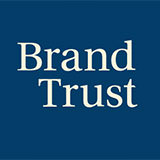
To attract the best talent, employers need a credibly managed, attractive employer brand.
To attract the best talent, employers need a credibly managed, attractive employer brand.
Article
28. März 2011 ▪ Reading time: approx. 2:00 min.
It has nothing to do with forecasts, estimates, or bets. There is nothing to deny or gloss over. The fact is: Starting in 2014 at the latest, the shortage of skilled personnel will be felt everywhere. Even today, companies who need engineers to drive their growth have to deal with the problem. Other skilled professions are increasingly affected, and soon sectors like retail and tourism will feel the strain. Talent is becoming scarce – not just the well-trained, motivated, and gifted employees companies are already desperately looking for, but employees of virtually all qualifications and hierarchy levels. From receptionist to head of sales for the Far East business. The "War for Talent" has just begun.
"Employer Branding" is currently being touted as the universal solution. But at close inspection, we find: it is old wine in new skins. Old methods are being sold as new and innovative under the name employer branding. Advertising agencies are stretching the term to design more colorful personnel ads with more pictures. Headhunters use it to upsell their interchangeable services. And personnel managers try to get a bigger slice of the marketing budget ("We're doing some branding now too – and we're advertising on Facebook"). All these are not new ideas, but merely prettied-up staff acquisition and recruiting methods. And they aren't even very effective: An Intraworlds survey of university students and young professionals revealed that not even one third rate the recruiting efforts of companies as "good". The rest consider them "mediocre", "bad", or could not even identify any company efforts whatsoever.
Credibly managed employer brands attract the best talent
But what is successful employer branding? Answer: When the key people intensively deal with their fundamental corporate relevance. When they make an effort to build a strong, attractive employer brand. Companies who manage to do this benefit from a quantifiable – and therefore highly relevant – impact of the brand on further development. But this is exactly where much needs to be done, as a study by Hewitt shows: More than 70 percent of companies surveyed are feeling the talent scarcity. At the same time, 46 percent complain that they are not being perceived as an attractive employer. And nearly half has not aligned its employer brand with the target groups.
Credibly managed, attractive employer brands attract the best talent, which creates strategic competitive advantages. In a service society where the lion's share of added value is no longer provided by machines or unskilled labor, the employer brand is becoming one of the strongest success factors. The one who attracts the best specialists and keeps them loyal stays in business.
Employer branding is becoming a key success factor
Added to that is the fact: Employees of highly relevant companies with a prominent reputation are more willing to compromise on their salaries and other benefits and possibly even accept some sacrifices (e.g. for the sake of their resume or social prestige). This creates cost advantages in the balance sheet and can lead to very relevant improvements of return where personnel costs make up the largest cost position. This makes employer branding a key success factor. The advantages are obvious and can be clearly quantified.
In five years at the latest, companies will need brand strategies that convince not only customers but potential employees as well! And because it takes a very long time to build credible and consistently effective brand systems, the time to tackle the issue is now. Because soon, talent will not be applying with companies, but companies will apply with their future employees.
BrandTrust is currently conducting a study on this topic that will probably be completed by the summer.













